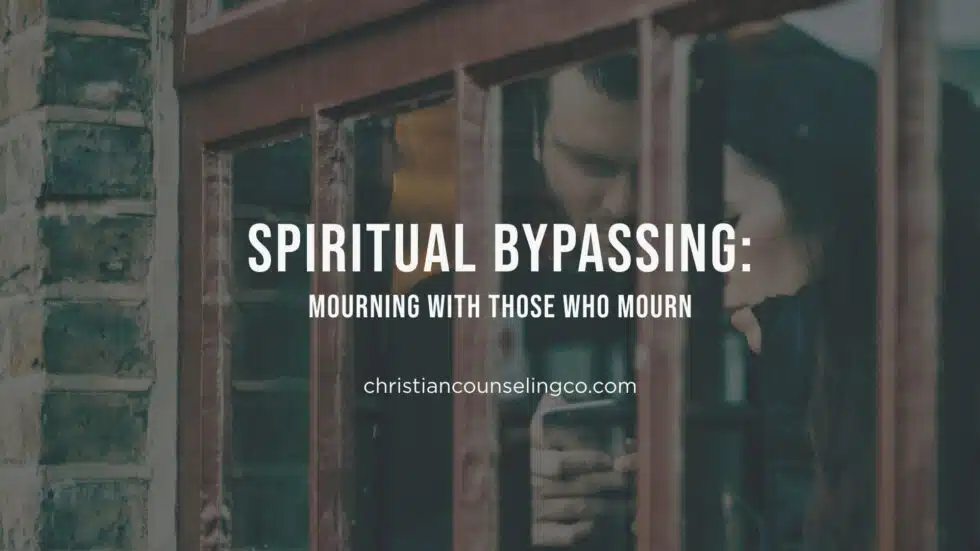My Experience With Spiritual Bypassing
At one point in my own healing journey, I was confessing to close friends my need for care from my community. I felt alone in my pain and I was asking for help. With the purest intent I was met with “what you really need is God your Father.”
I sat as the words embedded themselves in my spirit, deflating my sense of being seen and known. I understood what my friend was trying to offer, and what he said was not untrue, but it severely missed what I was needing at that moment.
What I really needed to hear was the love of God the Father through my friend: “I hear you are feeling so alone. What you are going through is so painful and I am here.” I needed my friend to mourn with me. Instead, I felt like he was passing my pain off to a God whom I always understood to show Himself through His people. I left feeling more profoundly alone in my pain than before. That loving, but misguided response from my friend is an example of something John Welwood termed “Spiritual Bypassing.”
What is Spiritual Bypassing?
”Spiritual Bypassing is using “spiritual ideas and practices to sidestep personal, emotional ‘unfinished business,’ to shore up a shaky sense of self, or to belittle basic needs, feelings, and developmental tasks.” –John Welwood
KJ Ramsey articulates what can lead to spiritual bypassing saying, “When we encounter another’s suffering, we experience the vulnerability of being limited in the scope and scale of our capacity to assuage pain.” She also states, “To grieve with those who grieve, you have to allow yourself to be affected by someone else’s suffering instead of rushing to reduce the pain.”
Spiritual Bypassing Doesn’t Happen With Ill-Intent
What are the effects of Spiritual Bypassing?
Tips for those who have experienced spiritual bypassing:
Before a conversation
After spiritual bypassing
Tips for if you recognize spiritual bypassing behavior within yourself:
Look inside
If you invited a person to share, knowing you would not offer spiritual tools or advice in return, what might you have to feel or face in yourself that makes you uncomfortable? Or that you haven’t come to accept? Might you have to face some of your own painful experiences? Powerlessness? The discomfort of not having answers?
Ask questions
If you are unsure if the person you are speaking with is looking for spiritual direction, try asking something like “How can I best support you with what you are needing right now? Are you looking for advice or do you just need me to listen and empathize with you? (Hint: most of the time it will be the latter)
What if part of claiming victory over mental illness is understanding how God created our bodies and brains, utilizing medication when there is a biological imbalance, showing up for each other with compassion and empathy as the body of Christ, and offering permission to suffer in the company of safe and compassionate witnesses?
Why does this matter? I believe that being truly known and loved by others is what helps to embed our experience of being known and loved by God.
For a beautifully gospel centered and well researched perspective on the importance of inviting suffering, read This Too Shall Last: Finding Grace When Suffering Lingers by
KJ Ramsey:
https://www.tatteredcover.com/book/9780310107255
Another incredibly insightful blog about this subject can be found here: https://www.alisoncookphd.com/spiritual-bypassing/
Author: kendra hill
Kendra Hill is an amazing Christian counselor on our team here in Colorado. She meets with individuals and couples in-person and online, and specifically loves to work with highly-sensitive people, those in the process of healing from Church Hurt, and those working through trauma or abuse.
If you’re interested in counseling with Kendra or another one of our other amazing counselors, click here to view our line-up.






